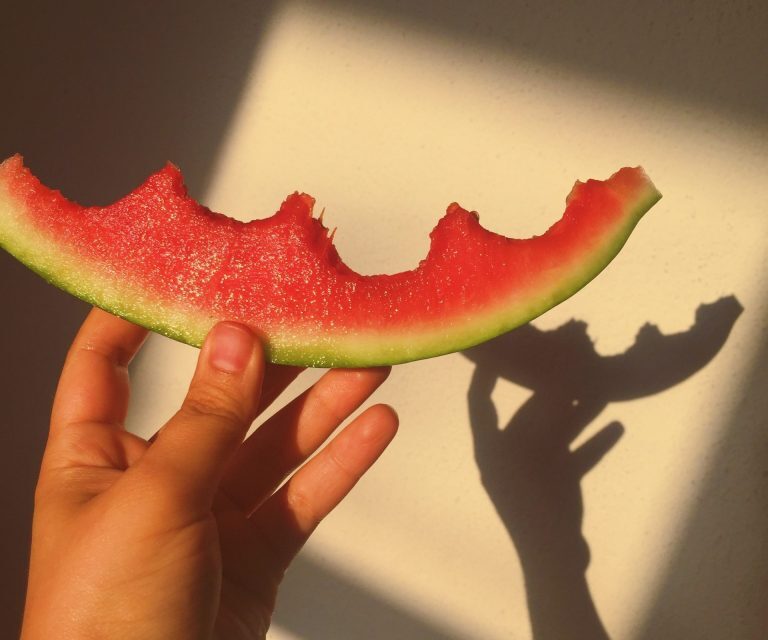By Reginald Williams,
Special to the AFRO
According to the U.S. Department of Agriculture, water makes up 92 percent of a watermelon’s content. One of the most nourishing foods available, watermelon hydrates on a cellular level—meaning the trillions of cells contained in the body are effectively nourished. Experts maintain that you can “eat your water” and meet your required water intake goal by eating fruit like watermelon.
“Watermelon is an excellent source of hydration which is essential for our body,” explains Jamilah Rouse, an Atlanta-based vegan advocate noted for her watermelon mock-tails and popsicles. “Watermelon is low in calories and high in fiber making it a great food for weight loss and digestive health.”
Packed with vitamins and antioxidants, the low-calorie fruit has proven beneficial in weight management, reduces inflammation and oxidative stress, and nutritionists suggest it may improve heart health. Experts suggest that the lycopene in watermelons assists in lowering cholesterol and blood pressure.
With heart disease being the leading cause of death in America, regular consumption of watermelon potentially provides a wealth of healing benefits.
Research by the National Library of Medicines (NLM) reports that “watermelon has been used to treat various ailments, such as cardiovascular diseases, aging-related ailments, obesity, diabetes, ulcers,and various types of cancers. The medicinal properties of watermelon are attributed by the presence of important phytochemicals with pharmaceutical values such as lycopene, citrulline, and other polyphenolic compounds.”
While dining on the vibrant red watermelon, most who regularly eat the fruit normally discard the rind and seeds. However, studies show that watermelon rind and the seeds are loaded with a buffet of health-healing benefits. Chlorophyll, citrulline, flavonoids (cancer fighter agents), and amino acids are found in the rind, which also contains high levels of vitamin A (supporting the immune system, heart, lungs and all other vital organs), vitamin B6 (promotes brain development), vitamin C (promotes blood flow), zinc and potassium. High in electrolytes, because of the sugar from the melon combined with the potassium, watermelon is an excellent dietary option.

The citrulline in the watermelon is an amino acid that supports the body’s ability to produce a gas called nitric oxide, which, in turn, helps the blood vessels to relax, potentially increasing blood flow and lowering blood pressure. A 2011 research study by the NLM revealed that flavonoids possess antioxidant, anti-inflammatory and anti-cancer properties.
Watermelon seeds are super-rich with micronutrients, including potassium, magnesium, and zinc.
Historically, the wealth of healing housed in watermelons also served as economic wellness for African-Americans. After emancipation, when the gateway to business funding and the halls of academia were non-existent for Blacks, watermelons were a profitable investment used by Black agriculturists to financially support their families.
The relationship between Black people and watermelons was usurped by malicious imagining.
The watermelon’s ability to push forward the freedom for Black people displeased White Americans. Intentional about emancipating the wealth of watermelons from the wealth and health of Black Americans, White Americans created negative narratives and racist tropes to shame Black people who loved eating the cash crop.
“White people had a monopoly on growing cotton. It staggered for a while [after the Civil War] because they didn’t have enslaved people to pick the cotton. But Black folks turned to what they thought was much healthier [watermelon], and it was a cash crop for Black folks,” explained Raymond A. Winbush, Ph. D. “For Black folks, it was a crop of liberation. For White folks, it symbolized the growing financial independence of Black folks– and they resented it.”
Minstrel shows (yesteryear’s version of social media) were imaging vehicles used to paint America’s collective consciousness that Black folks eating watermelon were lazy. Using White actors painted in blackface, minstrel shows served as platforms to normalize negative messaging.
“In the late 19th century, early 20th century, the watermelon trope by that time had sunken in,” explained Winbush, a research professor and director of the Institute for Urban Research at Morgan State University. “You began to see these Black caricatures of Black people grinning as well as holding a watermelon. Those images just festered.”
From post-Civil War through and beyond the fight for Civil Rights, America persistently tried to humiliate Black people and their kinship with watermelons. In 1916, vaudeville actor Harry C. Browne wrote “N***** Love A Watermelon Ha! Ha! Ha!,” using a popular tune that had previously made the cultural rounds. It became a minstrel show hit. Today, the tune is regularly heard in neighborhoods around the country, as it regularly blasted ice cream trucks throughout America. Children from Harlem to South Central, L.A. feverishly chase down the ice cream trucks, anxious to purchase their favorite summertime treat.
“White people are very good at taking our symbols of liberation, symbols of independence, symbols of consciousness, and turning them against us,” explained Winbush.
Noted for being a warm-season crop best purchased between May and September, it is highly common to have watermelons year-round. Regions with frost free clients and farmers with greenhouses grow melons throughout the year. Subsequently, local groceries stock them year-round. Many nutritionists suggest seeded eating watermelon (in its due season) because seeded watermelons are healthier.
The versatility of the watermelon allows for its consumption well past its due season. A melon, sliced into chunks, frozen and stored in an airtight container conveniently allows the fruit to be eaten for an additional six months.
Despite the negative consciousness that many Black people continue to hold about eating watermelon publicly, the native African delicacy continues to provide a wealth of nutritional benefits.
This summer, experts like Rouse say “the next time you want a healthy snack, reach for a watermelon.”
The post The truth about watermelon: a look at the most controversial fruit in the Black community appeared first on AFRO American Newspapers .










